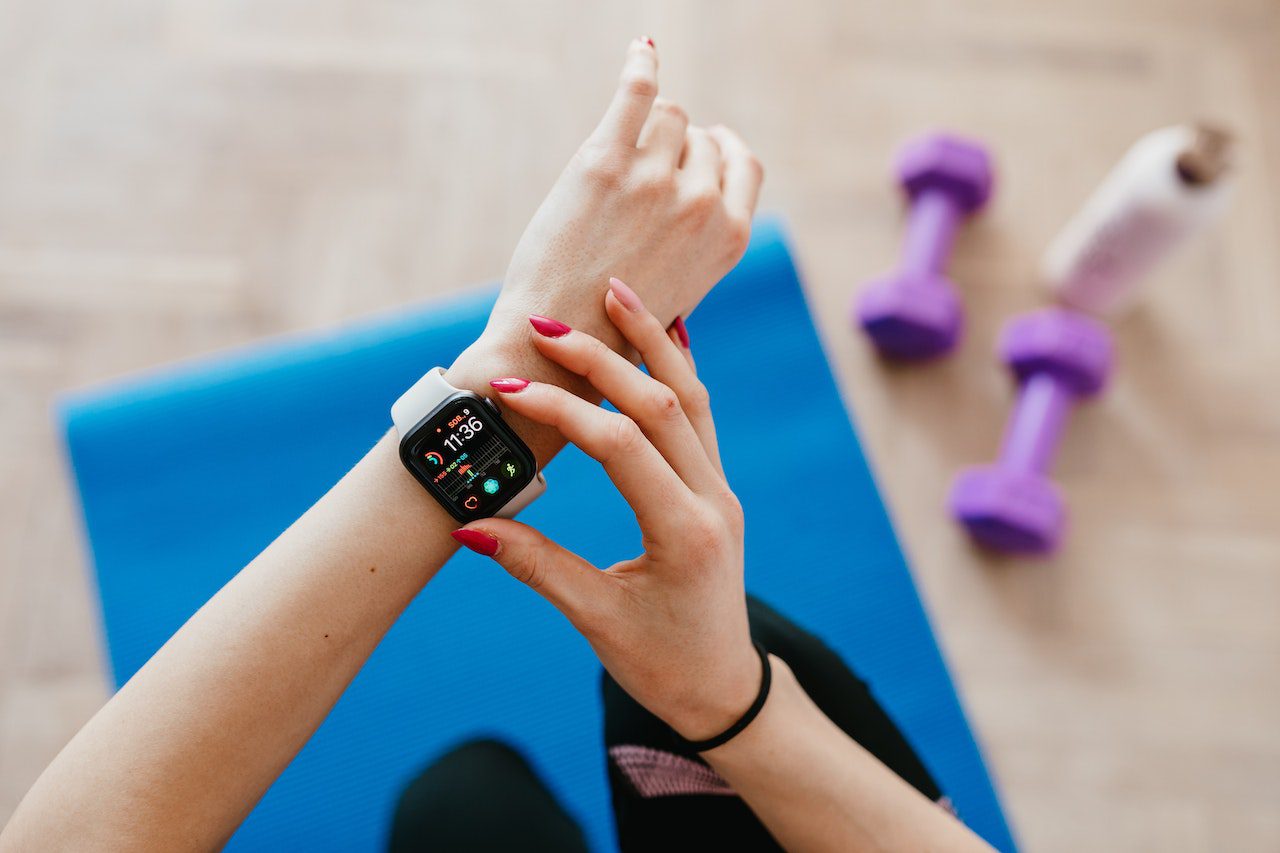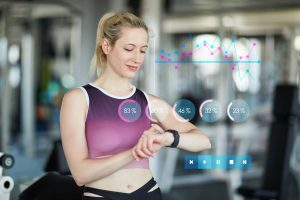Welcome to the transformative world of Wearable Health Technology, where you are at the center of the revolution, shaping the way you monitor and manage your well-being. In this blog, we’ll journey through the depths of wearable health technology, exploring its types, benefits, integration into apps, the future landscape, and much more, all tailored specifically for you. Therefore, with this being said, let’s get right into it:
What is Wearable Health Technology?
Can you imagine wearable devices as your dedicated health companions, worn on your body to collect and track essential health-related data? Well, that’s a reality now. From stylish smartwatches and fitness experts to innovative smart clothing and wearable patches. These devices, equipped with sensors, meticulously capture data on various health parameters. This includes heart rate, activity levels, sleep patterns, and even blood glucose levels.
Moreover, the magic lies in their ability to process this data, making it accessible through intuitive interfaces or specialized applications designed just for you. Speaking of which, there are different types of wearable technology for health monitoring, let’s discuss it in the section below.
Types of Wearable Health Technology
It goes without saying that wearable health technology is a huge spectrum that can be divided into different categories. In this section of the blog, we shall be discussing exactly the same. Therefore, let’s get right into it, starting with:
1. Smartwatches
Smartwatches aren’t not just a timepiece, but also a health dashboard. These devices keep you connected, monitoring heart rate, sleep, and activities while providing instant notifications, ensuring you are always in the loop.
2. Fitness Trackers
Your personal fitness coaches. They count your steps, measure distances, and calculate calories burned during exercise, motivating you to achieve your health goals, one step at a time.
3. Smart Clothing
Experience comfort combined with technology. Innovative fabrics embedded with sensors monitor vital signs like heart rate and body temperature. Therefore, seamlessly integrating health tracking into your everyday attire.
4. Wearable Patches
Lastly, we have wearable patches, that work as your personal silent health guardians. These patches monitor specific health metrics like ECG, glucose levels, or hydration status, providing real-time data to healthcare professionals. Thus, ensuring your well-being is never compromised.
Benefits of Wearable Health Technology
So, you are wondering what are wearable technology’s health benefits. Well, we will answer that question right up. Let’s look at some of the major benefits of wearable technology in healthcare. Therefore, let’s get right into it, starting with the first one:
1. Health Monitoring
Wearable Health Technology enables constant monitoring of vital signs, allowing for early detection of health issues and timely interventions, ensuring your health is always a priority.
2. Motivation
The technology sets goals, tracks progress, and rewards your achievements, inspiring you to adopt healthier lifestyles and stay dedicated to your well-being.
3. Chronic Disease Management
For chronic conditions like diabetes or hypertension, wearables offer real-time monitoring, leading to better disease management and reduced healthcare costs, putting you in control of your health.
4. Data-Driven Insights
The data collected by wearables provides actionable insights. Healthcare professionals use this information to make informed decisions, ensuring your health plans are tailored specifically to your needs, and enhancing your overall quality of life.
How To Integrate Wearable Health Technology Into The App?
So, how do integrate wearable health technology into mobile app development? Well, don’t you worry, we will help you with it? Let’s look at the steps taken to do so in the section below. These are, as mentioned below:
1. Choose the Right Device
Select devices compatible with your goals. Whether it’s fitness trackers, smartwatches, or wearable patches, align them with your app’s purpose. Thus, ensuring seamless integration and a superior experience tailored for you.
2. Data Security
Your privacy matters. Ensure robust data encryption and compliance with healthcare regulations, safeguarding your sensitive health information. Moreover, you have to look at trust and security as paramount. Therefore, ensuring your peace of mind as you track your health journey.
3. User-Friendly Interface
Create an intuitive interface, allowing you to effortlessly sync your wearables with the app, view your data, and set preferences. Your experience matters, ensuring you navigate your health information effortlessly.
4. Interpretation of Data .
Implement advanced algorithms that process raw data into meaningful health insights. Accuracy and reliability are key, ensuring the information you receive is precise, and empowering you to make informed decisions about your health.
The Future of Wearable Health Technology
Your health journey continues to evolve. With advancements in Artificial Intelligence (AI) and machine learning, wearables will provide even more precise health predictions. You can imagine a future where wearables seamlessly integrate with telemedicine services and electronic health records, enhancing your healthcare experience, and making it more personalized and efficient.
Furthermore, these wearables will not just monitor but actively contribute to preventive healthcare, predicting health issues before they escalate, and ensuring your well-being is always a priority.
Conclusion
Wearable Health Technology has emerged as a beacon of hope in the healthcare industry, empowering individuals to actively manage their well-being. These devices have transcended mere gadgets, becoming indispensable tools for a healthier lifestyle.
FAQ
Q1: Are wearable health devices safe to use?
Yes, wearable health devices are generally safe to use. However, it’s crucial to buy from reputable manufacturers and follow the usage guidelines to ensure safety. Always consult healthcare professionals if you have concerns about specific health conditions.
Q2: Can wearable health devices replace regular medical check-ups?
While these devices provide valuable insights, they can’t replace comprehensive medical check-ups. Regular visits to healthcare professionals are essential for a complete health assessment. Wearables serve as complementary tools, enhancing the overall healthcare experience.
Q3: Do wearable health devices work for all age groups?
Yes, wearable health devices are designed for people of all age groups. From young adults to seniors, there are devices tailored to specific needs and preferences. Whether you’re a fitness enthusiast or managing a chronic condition, there’s a wearable device suitable for you.
Q4: How accurate are the health measurements taken by wearables?
Most wearable devices provide reasonably accurate measurements. However, the accuracy may vary between brands and models. Reading user reviews and consulting healthcare professionals can help in choosing reliable devices.
Q5: Can wearable health technology help in weight management?
Absolutely. Wearable devices can track your physical activities and help you monitor your calorie expenditure. This data, coupled with a balanced diet, is invaluable for effective weight management.












